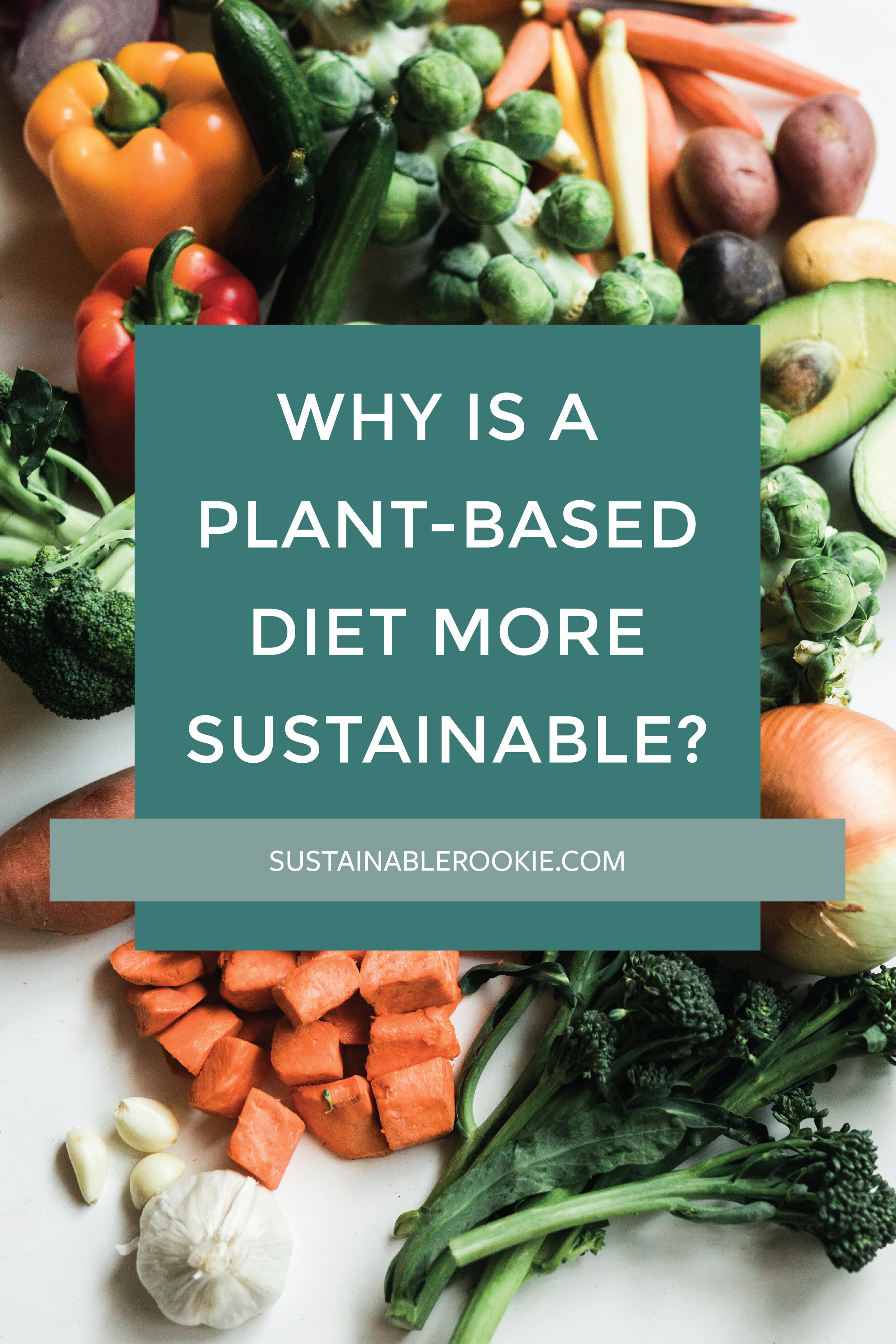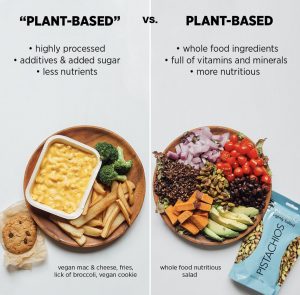The Top 5 BBQ Sauces Every Plant-Based Chef Should Stock
The Top 5 BBQ Sauces Every Plant-Based Chef Should Stock
Blog Article
All Regarding Healthy And Balanced Food: Benefits of Taking On Plant Based Alternatives
The conversation bordering plant-based diets has acquired significant interest in recent years. Many individuals are discovering the potential wellness benefits, dietary advantages, and ecological influences related to these dietary selections. As individuals come to be more mindful of their food's impact on health and sustainability, inquiries occur about the practicalities of taking on such a way of life. What specific changes can one expect, and exactly how might these choices improve not just individual wellness however also the world's future?
Understanding Plant-Based Diet Regimens
Although many individuals associate plant-based diets generally with vegetarianism or veganism, these diet regimens can include a variety of consuming patterns that prioritize whole, minimally refined plant foods. Such diet regimens often consist of fruits, veggies, whole grains, nuts, seeds, and vegetables, while restricting or getting rid of animal items. This adaptability permits individuals to tailor their nutritional options according to personal preferences and nutritional requirements. Some might adopt a mostly plant-based diet regimen while still sometimes consuming meat or dairy products, usually described as a flexitarian technique. The emphasis continues to be on incorporating even more plant foods, which can lead to a varied array of meals and tastes. Recognizing these various interpretations of plant-based consuming is crucial for appreciating its ease of access and appeal in modern food culture.
Health Perks of Plant-Based Foods
The wellness advantages of plant-based foods are considerable, offering a nutrient density advantage that sustains overall wellness. Research suggests that these foods can enhance heart health and play an important role in effective weight monitoring. By incorporating much more plant-based options, individuals may enhance their dietary choices and advertise long-term wellness.
Nutrient Density Benefit
Nutrient thickness plays an important duty in the health benefits of plant-based foods, making them an engaging selection for those looking for a balanced diet regimen. Plant-based foods, such as fruits, vegetables, beans, nuts, and whole grains, are usually abundant in essential vitamins, minerals, and antioxidants while being lower in calories. This high nutrient thickness enables people to take in less calories while still satisfying their nutritional needs. In addition, these foods are packed with nutritional fiber, promoting gastrointestinal wellness and helping in weight management. By incorporating nutrient-dense plant-based alternatives, consumers can boost their overall health, support their immune systems, and decrease the threat of persistent diseases. Eventually, the nutrient thickness of plant-based foods underscores their relevance in a health-conscious lifestyle.
Heart Wellness Enhancement

Weight Management Assistance
In enhancement to promoting heart wellness, a plant-based diet regimen can considerably assist in weight administration. This dietary approach stresses whole foods such as fruits, veggies, vegetables, nuts, and whole grains, which are generally reduced in calories and higher in fiber compared to animal-based items. The high fiber material assists increase satiation, reducing overall calorie consumption. Plant-based diets are usually rich in necessary nutrients while reduced in harmful fats, making it simpler to keep a healthy weight. Research shows that individuals who embrace a plant-based lifestyle tend to have lower body mass indexes (BMIs) and experience more effective weight management compared to those who take in meat-heavy diet regimens. Consequently, accepting plant-based alternatives is a strategic choice for efficient weight administration
Nutritional Worth of Plant-Based Ingredients
Plant-based ingredients are abundant in vital nutrients, offering a diverse range of vitamins, minerals, and anti-oxidants that contribute to general health and wellness. A contrast of healthy protein sources exposes that while pet items are commonly watched as superior, many plant-based options offer sufficient healthy protein and various other beneficial substances. Recognizing the dietary value of these active ingredients can aid people make educated nutritional choices.
Vital Nutrients in Plants
Nutrient-rich components discovered in plants provide a varied selection of crucial nutrients that add considerably to general health and wellness. These ingredients are rich in vitamins A, C, and K, which support immune function, vision, and blood clotting, respectively. In addition, plants offer essential minerals such as calcium, potassium, and magnesium, essential for heart wellness, muscle feature, and bone toughness. The existence of fiber in plant-based foods aids food digestion and advertises a healthy and balanced gut microbiome. Antioxidants, found perfectly in fruits and veggies, help battle oxidative anxiety and reduce swelling. Several plant foods are low in calories yet high in nutrients, making them an excellent option for those seeking to maintain a healthy weight while ensuring ideal nutrient consumption.

Contrasting Protein Sources
Protein resources differ substantially in their nutritional profiles, with plant-based active ingredients supplying unique advantages. Unlike pet proteins, which frequently contain saturated fats and cholesterol, plant proteins tend to be lower in these undesirable components. Legumes, nuts, seeds, and whole grains are rich in crucial amino acids, fiber, vitamins, and minerals. For circumstances, lentils offer high protein material along with considerable iron and folate, while quinoa is a complete protein, using all nine essential amino acids. Additionally, plant-based healthy proteins are typically accompanied by anti-oxidants and phytochemicals that sustain general health Sugar Free Sauces and wellness. The change to plant-based healthy protein resources not just boosts dietary intake however additionally lines up with sustainable nutritional practices, reducing ecological impact and promoting long-lasting health go advantages.
Environmental Effect of Plant-Based Consuming
As recognition of environment change grows, several individuals are checking out lasting nutritional choices that can significantly decrease their environmental footprint. Plant-based eating has arised as a considerable contributor to decreasing greenhouse gas exhausts, which are mainly connected with livestock production. The cultivation of fruits, vegetables, grains, and legumes typically needs fewer sources, such as water and land, compared to pet farming. Furthermore, plant-based diet regimens can result in lowered deforestation, as less land is needed for grazing animals or growing animal feed. By shifting towards plant-based options, customers can support biodiversity and promote healthier ecosystems. Generally, embracing plant-based consuming not just advantages individual health but likewise stands for an essential action towards environmental sustainability and conservation initiatives.
Overcoming Common Misconceptions
While lots of individuals identify the advantages of a plant-based diet regimen, numerous false impressions frequently hinder them from totally welcoming this way of life. An usual belief is that plant-based diet plans do not have adequate healthy protein; however, many plant resources, such as vegetables, nuts, and tofu, give sufficient protein. Additionally, some assume that this diet plan is costly, when as a matter of fact, staples like beans, rice, and seasonal vegetables can be fairly affordable. One more mistaken belief is that plant-based consuming is excessively restrictive, whereas it really offers a varied selection of flavors and foods. Several stress that a plant-based diet regimen might lead to shortages, yet with appropriate preparation, people can get all necessary nutrients, consisting of minerals and vitamins, while taking pleasure in a wide selection of tasty dishes. Broad Tips for Transitioning to a Plant-Based Way of living
Making the shift to a plant-based way of life can be an enhancing experience, though it typically calls for some advice to navigate the first adjustments. People are motivated to start gradually, integrating more fruits, veggies, beans, and whole grains right into their meals while reducing meat and dairy intake. Meal preparation is essential; preparing a regular food selection can aid alleviate the adjustment and protect against last-minute harmful selections. Exploring brand-new recipes and cooking approaches can likewise boost the experience and maintain exhilaration about plant-based eating. Additionally, signing up with support system or neighborhoods can supply motivation and share useful ideas. Remaining educated about nutrition assurances well balanced dishes, avoiding deficiencies while fostering a healthy, gratifying plant-based way of life.

Delicious Plant-Based Meal Ideas
Exploring tasty plant-based dish ideas can influence individuals to embrace an extra nutritious diet plan. One popular option is a passionate quinoa salad, featuring cherry tomatoes, cucumber, and a spicy lemon-tahini dressing. One more favorite is a savory lentil stew, packed with carrots, celery, and great smelling herbs, best for a calming supper. For breakfast, over night oats made with almond milk, chia seeds, and covered with fresh berries give a healthy start to the day. Furthermore, a vivid vegetable stir-fry with tofu and a range of colorful veggies can be a quick yet satisfying dish. Velvety avocado salute on whole-grain bread, sprinkled with seeds and flavors, uses an easy yet savory snack. These dishes showcase the selection and richness of plant-based eating.

Often Asked Concerns
Can a Plant-Based Diet Supply Enough Healthy Protein?
The inquiry of whether a plant-based diet plan can offer sufficient protein is common. Various sources, consisting of legumes, nuts, seeds, and entire grains, can satisfy protein requires efficiently, sustaining a balanced and nourishing diet regimen for individuals.
Are Plant-Based Diet Regimens Suitable for Children?
The suitability of plant-based diet plans for youngsters depends on mindful planning. Appropriate nutrients should be assured, consisting of healthy proteins, vitamins, and minerals. With proper guidance, such diet regimens can sustain healthy and balanced growth and advancement in youngsters.
Just how Do I Eat Out on a Plant-Based Diet?
Dining out on a plant-based diet plan includes seeking restaurants with diverse food selections, requesting modifications, and exploring vegan-friendly choices. Planning in advance and communicating dietary preferences can improve the dining experience while preserving nutritional choices.
What Are Common Irritants in Plant-Based Foods?
Typical irritants in plant-based foods include soy, right here gluten, nuts, and seeds - Plant Based Chicken. Individuals adhering to a plant-based diet regimen ought to be aware of these allergens and read tags very carefully to prevent unfavorable responses and assure secure intake
Can Plant-Based Diets Aid With Weight Loss?
Research indicates that taking on a plant-based diet might promote fat burning because of its usually reduced calorie density and greater fiber material. This combination can enhance satiation, assisting individuals handle their caloric consumption properly. Lots of individuals connect plant-based diet regimens mostly with vegetarianism or veganism, these diets can include a vast range of consuming patterns that focus on entire, minimally refined plant foods. Nutrient thickness plays an important role in the health benefits of plant-based foods, making them a compelling selection for those looking for a well balanced diet plan. Plant-based diet plans have been revealed to significantly boost heart wellness, as they often have components that sustain cardiovascular feature. In addition to advertising heart health and wellness, a plant-based diet plan can substantially aid in weight administration. A common belief is that plant-based diet regimens do not have adequate healthy protein; nonetheless, many plant sources, such as vegetables, nuts, and tofu, supply adequate protein.
Report this page